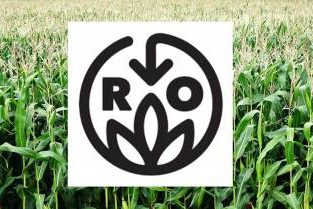Regenerative Organic Certification
Regenerative Organic Certification is a program to establish more demanding guidelines for organic agriculture.
The move toward Regenerative Organic Certification is being led by the Rodale Institute, a pioneering Pennsylvania-based nonprofit group that supports and researches organic farming.
The project is a cooperative effort among farmers, ranchers, nonprofits, scientists, and brands.
What Is Regenerative Agriculture?
The concept of regenerative agriculture dates back at least to the 1940s and to the founding of the Rodale Institute. Robert Rodale of the institute coined the term “regenerative agriculture” to refer to sustainable farming practices that meet what he calls “the pressing challenges of climate change and the need to sequester carbon in the soil.”
In the decades since the Rodale Institute was founded, the regenerative agriculture movement has grown substantially. Today regenerative agriculture includes concepts such as whole-farm design, multi-story agroforestry, and rotational livestock integration.
Regenerative agricultural practices include:
- Crop rotation for healthy soil
- Well-managed livestock grazing
- Maximized beneficial uses of water
- Minimum soil disturbance and minimum tillage for healthy soil
- Habitats for bees and other beneficial insects
- Crops produced with minimum inputs and maximum yields
Regenerative Organic Certification
The new certification program is based upon the existing organic guidelines overseen by the USDA’s National Organic Program. However, the new program includes a path to the future via an emphasis on continuous improvement—something the National Organic Program lacks.
 NSF International, an American product-testing and inspection specialist, has joined the effort. Using its extensive global experience in certification standards, NSF is facilitating the qualifications process for Regenerative Organic Certification.
NSF International, an American product-testing and inspection specialist, has joined the effort. Using its extensive global experience in certification standards, NSF is facilitating the qualifications process for Regenerative Organic Certification.
As Jeff Moyer, executive director at the Rodale Institute, points out, “NSF has the capacity to take novel standards and put them into practice.”
The Regenerative Organic Certification program intends to build on existing organic specifications and establish newer, more demanding criteria for agricultural practices. These practices, known as the “three pillars” of the project, are:
- Regenerating the soil and sequestering climate-changing carbon
- Providing economic fairness to farm workers
- Improving animal welfare
Regenerative Organic Certification will provide guidance to farming and ranching operations regarding transportation, slaughter, and processing facilities involved in the production of food, cosmetics, and fibers.
Certification will mean the endorsed party has met strict guidelines, and certified products will have permission to display a Regenerative Organic logo.
Moyer continues, “Regenerative Organic gives farmers something new to strive for so they can have continuous improvement in their operations.”
Meanwhile Rose Marcario, CEO of outdoor clothing manufacturer Patagonia, Inc., is enthusiastic about the new certification program. Patagonia has taken an exceptional interest in doing what’s best for the planet, and it is the first apparel company to switch to 100 percent organic cotton in its clothing.
Other companies involved at this stage in the certification process include:
- Grain Place Foods, specializing in top-quality certified-organic whole grains and seeds
- Maple Hill Creamery, known for its 100-percent-grass-fed dairy cows
- White Oak Farms, provider of meat from USDA-inspected pasture-raised animals.
“Regenerative Organic Certification represents an important moment,” Marcario says. She concludes, “I hope more companies will join us on this journey around Regenerative Organic Certification and focus on making big changes in supply chains.”






